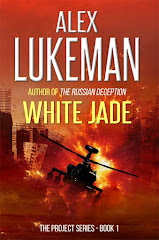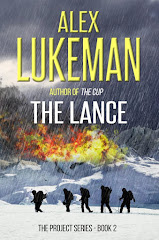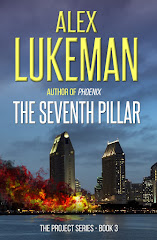So you want to write good characters? Are you suffering from information overload from all those hundreds (if not thousands) of articles, books, blogs and what not with great tips about making your characters believable and real?
There is hope. Learn from the British writers of Masterpiece Theater Classics and have fun doing it. Learning the craft and entertainment at the same time, what could be better?
Downton Abbey is one of those Upstairs/Downstairs dramas the Brits are so fond of, set in the sunset of Empire and the time of extreme class distinctions. You know. 200 room country houses with a huge staff and Gainsborough paintings in the dining room. Where the silverware is laid out with a ruler. Servants who face poverty and disaster if they lose their position.
I won't go into details of the plot. It's quite complicated. What makes it work is the characters. What might be a ho-hum story with lots of tea and silverware becomes intensely involving. All this without large explosions and such a la Sherlock Holmes. WWI is approaching, so there will probably be future explosions, but I haven't seen that part yet.
Upstairs, devious women, sibling rivalry of the most hateful kind, flighty and highly intelligent people, an activist sister, an heirless master trying to deal with the issues of passing on the estate (complicated again) and four different women with a full range of conflicting emotions and ideas in a world ruled by men. Marriage for the daughters on everyone's mind. Changing times as women's rights become a factor. A dowager duchess control freak. A meddling aunt. The duties and restrictions of the upper class. And to cap it off, a middle class lawyer cousin from Manchester (Manchester! Horror!) who is suddenly thrust into this unfamiliar world of extreme wealth by the untimely sinking of the Titanic and the deaths of the heirs presumptive. He's the new heir. And he doesn't even have a valet!
Downstairs, the new, mysterious valet to the master, immediately threatened by a scheming footman and m'lady's maid. A cook going blind, putting salt instead of sugar on the dessert. A ditsy, innocent country girl, cook's helper, coal carrier. The butler, who rules the servants, a man of honor and integrity and quite a lot of intuitive intelligence. The housemistress, who rules the maids and so forth. A maid who wants to improve herself, rise above her station and (Horror, Again!) become a secretary. The Irish revolutionary chauffeur, falling in love with the activist sister. And more.
A cast worthy of Shakespeare. Every single actor in this series is superb. Every actor is totally convincing. Every actor becomes the character in a way that illumines his or her motivation, desires, needs, flaws, challenges, mistakes, backstory.
WARNING: OPINION ALERT
I believe in the osmosis effect. Just as I think we learn most about writing by reading the work of authors we think are good and consciously observing how they do it, I think we can learn all anyone ever needs to know about character development by watching this show. Well, perhaps not all, but a hell of a lot.
Okay, you're settled in front of the big screen with a single malt or whatever, and you are wondering why I think this show is important for your personal craft of writing. The music begins, the credits roll. You have opened the writer's eye. Watch how you begin to form opinions about the various people in the story.
At first you know little, but infer much. The setting tells you that. Then you begin to see how people interact, what they are thinking about, how they behave. You are looking from a writer's eye. How the behavior of the characters speaks volumes about who they are. How the writers keep things back but let the viewer know something is hidden. How the story takes on life through the characters. How a sudden twist is completely unexpected and how it dramatically alters the course of the story. How the characters are affected by that. How you begin to infer more of where things are going and what someone might do and how you are surprised by what actually happens.
There's a good reason it's called Masterpiece Theater. Downton Abbey is an amazing production. From a writer's point of view, it's a graduate course in character definition and development. Watch it. I think you will agree.











